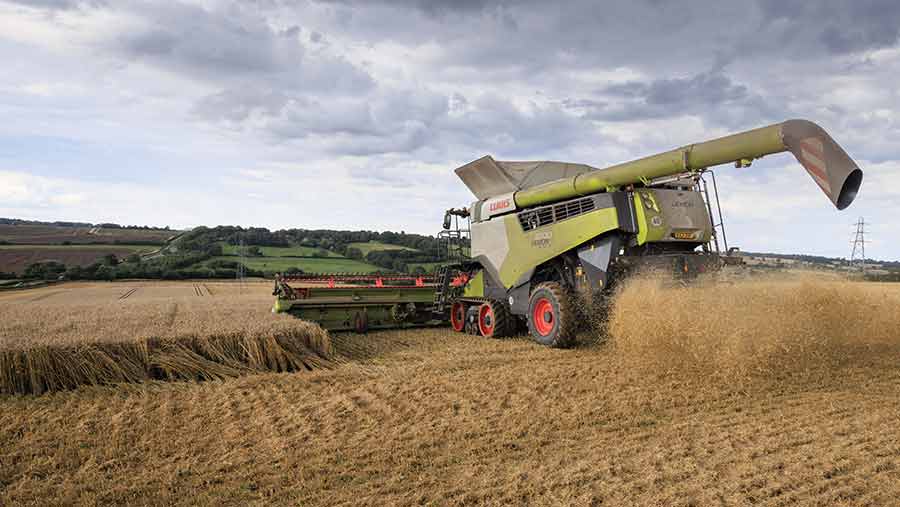Defra’s survey reveals lack of confidence in farming schemes
 © Tim Scrivener
© Tim Scrivener More than half of farmers are not at all positive about their own future in farming when taking into account changes to existing payments and regulations, according to Defra’s latest farming opinion tracker.
The survey provides an insight into farmers’ views of Defra’s vision for farming – and it received almost 1,400 responses in April 2023.
Defra’s tracker found almost two-thirds (63%) of respondents were not at all positive about the general future of farming, and 71% were not at all confident that changes to schemes and regulations would lead to a successful future.
See also: Transition survey reveals depth of concern over policy and costs
However, the survey did reveal some improvements on previous tracker responses, with 64% of respondents saying they either fully or partially understood Defra’s vision for farming, up from 60% in October 2022.
Responses indicate that three-quarters of farm businesses have either already or are due to make changes to their farm businesses during the next three to five years.
Looking at environmental outcomes, 73% believed it was either very or moderately important to farm businesses that Defra pays for environmental outcomes.
Forty-five percent were looking at staying in farming, but planning to diversify into non-farming areas as an additional source of revenue.
High input costs and changes in output prices were the two biggest reasons for changes to farm businesses.
Defra also received 382 open-text written responses to the tracker, providing a more in-depth qualitative insight into individuals’ views on its work.
The most frequently occurring comments were on Environmental Land Management (ELM) and concerns about eligibility and the attractiveness of the schemes as well as payment rates.
Food security fears
Farmers said there was not enough focus within the schemes on the need for profitable agriculture and the role of food production.
Food security, the effect of trade deals, and the need for a level playing field for imports were also all raised as concerns.
Commenting on the findings, Defra farming minister Mark Spencer said: “Listening to farmers is a crucial part of my job and it is how we shape our future farming policy.
“This survey took place in spring 2023 and since then we have set out full detail on the new and improved Sustainable Farming Incentive 2023, brought the whole food sector together in Downing Street to deliver a major package of support, and provided millions of pounds of grants to help thousands of farmers improve their productivity and sustainability.
But he added: “I am not complacent and want to reassure farmers we will continue to listen to them and work with them to improve how our schemes work for farm businesses, food production and the natural environment.”
NFU reaction
NFU president Minette Batters said she was not surprised the Defra survey had revealed farmer anxiety about the future, especially given the current uncertainty regarding the economic outlook and government policy they are having to respond to.
“The NFU’s own confidence survey showed that 82% of farmers believed a phasing out of BPS will negatively affect their business in the year ahead, with input costs, regulation, trade policy and government support schemes all being key areas of concern,” she added.
“Confidence is based on certainty within the regulatory and policy environment, so we need urgent clarity and further detail from government to show how new farming payment schemes will work for all farmers.”
Farmers’ views: Do you feel positive about the future of UK agriculture?
“Overall, yes. I think farming has got a good future. There will always be challenges with climate change and extreme weather events and the loss of BPS payments. It’s going to be harder to produce food for everyone in a growing population, which is why farming is going to become more important.”
David Butler, mixed farmer based near Marlborough, Wiltshire
“I’m feeling fairly positive about the future of farming in this country because eventually we will have a government (maybe not this present one) which wakes up and realises the importance of food security. This government has got to change tack, but they are not going to.”
Charles Anyan, arable farmer based in Lincolnshire
“Farming is going through the biggest period of change since wartime. Farmers are concerned about tree planting and are confused about carbon offsetting. There are also worries about landowners taking back tenancies, which will affect contract farmers. There is a positive future, but I think we are going to lose family farms on the way.”
Sally-Ann Spence, mixed farmer based in Ashbury, Wiltshire
